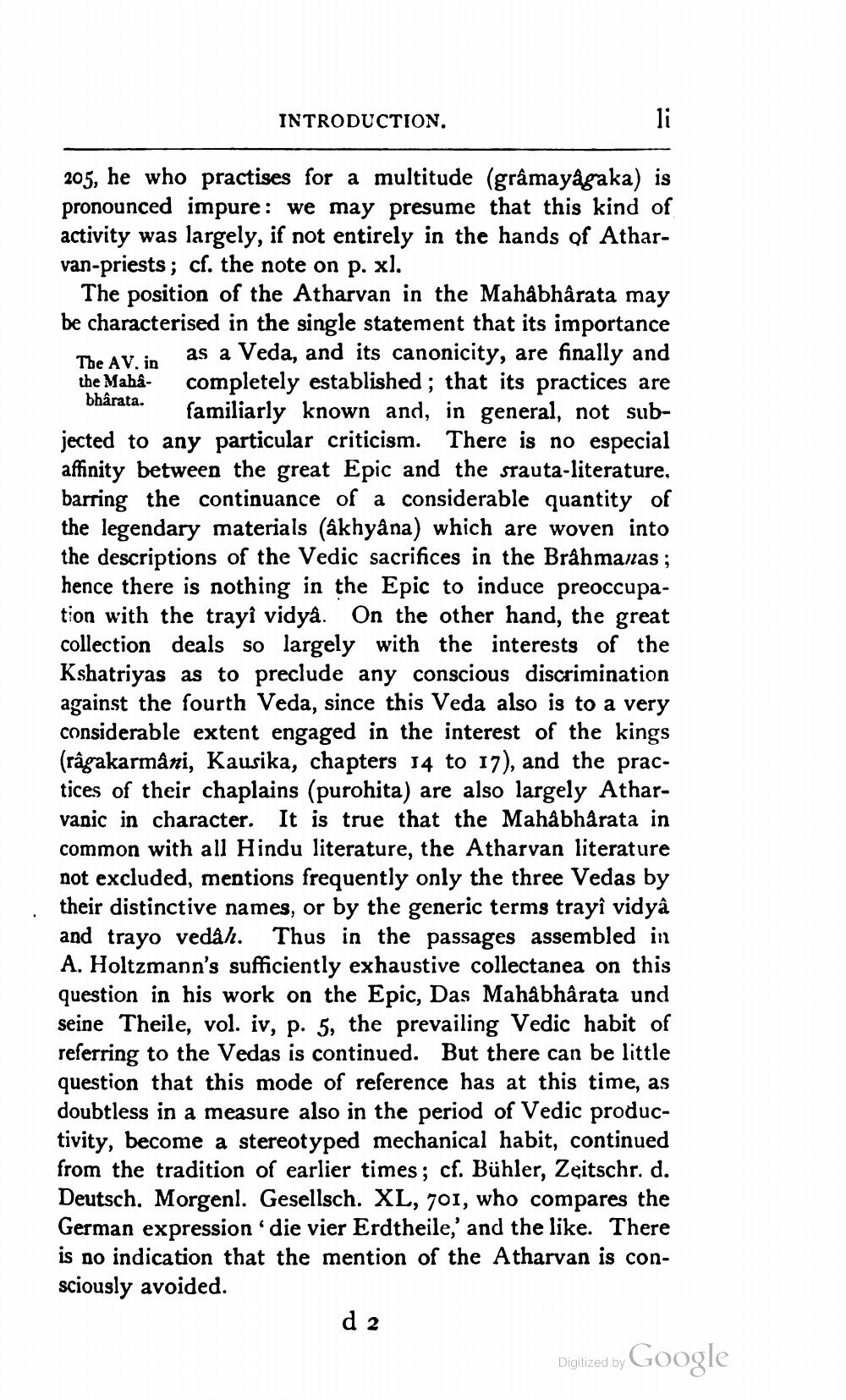________________
INTRODUCTION.
205, he who practises for a multitude (grâmayågaka) is pronounced impure: we may presume that this kind of activity was largely, if not entirely in the hands of Atharvan-priests; cf. the note on p. xl.
The position of the Atharvan in the Mahâbhârata may be characterised in the single statement that its importance
The AU in as a Veda, and its canonicity, are finally and the Maha- completely established ; that its practices are
bharata. familiarly known and, in general, not subjected to any particular criticism. There is no especial affinity between the great Epic and the srauta-literature, barring the continuance of a considerable quantity of the legendary materials (akhyāna) which are woven into the descriptions of the Vedic sacrifices in the Bråhmanas; hence there is nothing in the Epic to induce preoccupation with the trayi vidyå. On the other hand, the great collection deals so largely with the interests of the Kshatriyas as to preclude any conscious discrimination against the fourth Veda, since this Veda also is to a very considerable extent engaged in the interest of the kings (râgakarmâni, Kausika, chapters 14 to 17), and the practices of their chaplains (purohita) are also largely Atharvanic in character. It is true that the Mahabharata in common with all Hindu literature, the Atharvan literature not excluded, mentions frequently only the three Vedas by their distinctive names, or by the generic terms trayî vidya and trayo vedah. Thus in the passages assembled in A. Holtzmann's sufficiently exhaustive collectanea on this question in his work on the Epic, Das Mahâbhârata und seine Theile, vol. iv, p. 5, the prevailing Vedic habit of referring to the Vedas is continued. But there can be little question that this mode of reference has at this time, as doubtless in a measure also in the period of Vedic productivity, become a stereotyped mechanical habit, continued from the tradition of earlier times; cf. Bühler, Zeitschr. d. Deutsch. Morgenl. Gesellsch. XL, 701, who compares the German expression die vier Erdtheile,' and the like. There is no indication that the mention of the Atharvan is consciously avoided.
d 2
Digized by Google
Digitized by




